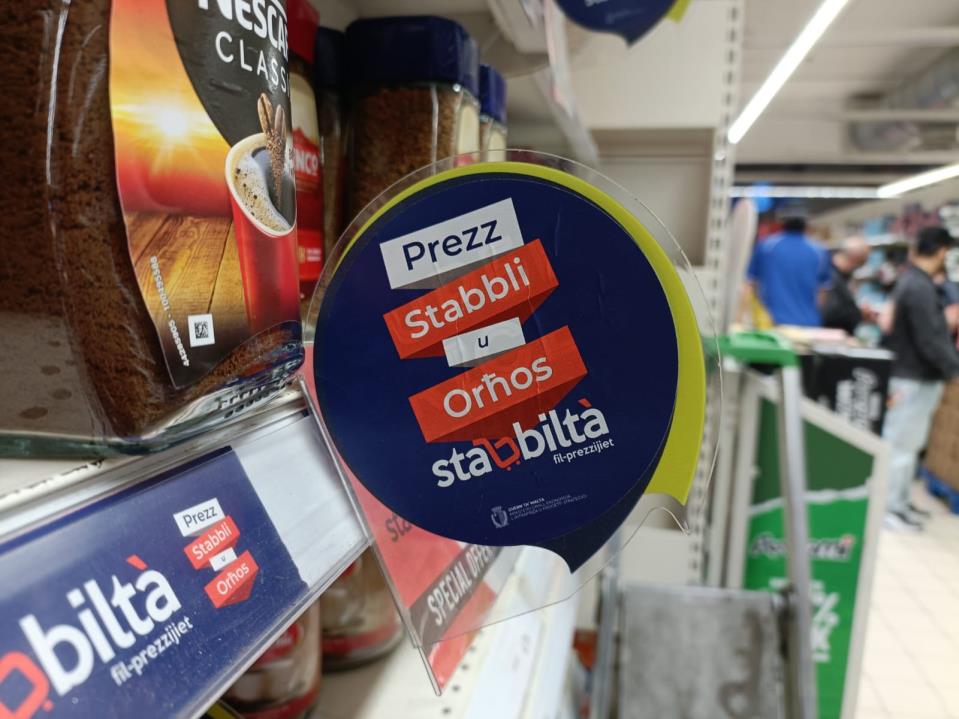Businesses applying for government-issued tenders must run a gauntlet of "tailor-made specifications" and certain "needless certification" in a procedure lasting months, the president of the Malta Chamber of SMEs, Paul Abela, told The Malta Independent on Sunday.
Following this, participants are either informed that the tender has gone to an overseas company or that it was chosen for a value that was rendered unprofitable by time in a highly dynamic market, Abela said.
Two officials from the Malta Chamber of SMEs, Abela and Council member Beppe Muscat, the latter of whom drafted this year's budget proposals for the Chamber, were interviewed by this newsroom.
Among the Chamber's budget proposals are suggestions to create a Public Procurement Ombudsman and to establish a specialised procurement committee. Abela said that the issue regarding public procurements has been a long-time coming and has been raised in every budget by the Chamber of SMEs and other business entities. The issue does not lie with the Department of Contracts, he said, "but the ministries are to blame".
Abela explained that when the Department of Contracts receives a request from a ministry to issue a tender, it is issued through normal procedure, however, when it comes to tender specifications members of the Chamber had reported instances where these were "tailor-made for which only one bidder can abide to". He also mentioned that interviews during a tendering process can involve "subjectivity".
Abela said that the bids are then passed on to the respective ministry's consultant. "Obviously, every minister has his own consultant and they consult with the respective bidder as well." He said that following this, there is a breakdown of communication between the Department of Contracts and the respective ministry when details of clarification are requested. "I think there is a lacuna between the Department of Contracts and the ministry when there is a request for a specific item or specific goods."
When asked how the appointment of an Ombudsman of Public Procurement would help the situation he said: "It will make it more effective because currently, contracting a tender is a long procedure taking about three to four months. After those months, one may find out that the tender was won by someone else overseas or that their initial quota is not viable anymore due to rapid market fluctuations. A tender must be decided in a very short period of time. And a short period of time for the government doesn't exist unless it wants to direct the tender to a particular candidate or overseas."
Abela also pointed out a bias in the issuing of tenders regarding certification. While he acknowledged that certain certification is necessary, there are others which "they can do without" saying that it is another strategy to exclude participants from applying for a tender.

Abela said that while the government should maintain its silence regarding quotes, it should take a "forward-looking" approach to tenders with more involvement from the Ministry of Finance. Elaborating on this, he alleged that certain participants are informed about a tender before it is issued, which he said makes a great difference to businesses. He said that this lack of transparency has resulted in a lack of confidence in the overall procurement process.
Abela called for an overhaul of the whole procurement procedure, and said that for these reasons, public procurement should be more organised and transparent, with contract specifications being standardised and decided upon by the Department of Contracts and not ministries.
Abela said that an Ombudsman would be part of this procedure and, like other Ombudsmen, should there be a complaint may directly intervene and make recommendations. He said that as things stand, it is a "free for all" and transparency is crucial since millions of Euro are currently being handled in tenders in every sector.
Turning to direct orders, while Abela believes they shouldn't be stopped as in urgent situations they are justified, "direct orders have to be monitored. At the moment, in departments and ministries, it's a free-for-all when it comes to direct orders of up to €100,000. And a tender could be issued for a lot of them". He believes that a different procedure for direct orders should be implemented.

'Not just a wishlist'
Regarding the Chamber of SME's budget proposals, Muscat stressed that they are not "just a wishlist", but were devised in a way that gives consideration to "the government side of things, that are sustainable while addressing other governmental priorities". He said that the proposals were based on four pillars.
Muscat said the first pillar is "investment incentivisation" and follows the Chamber's SME barometer last quarter, which found that 53% of those surveyed are "undecided or uncertain with respect to investment decisions". Therefore, he said "we want to send a clear message that government needs to incentivise investment and support investment".
Muscat said that the second pillar, "business", tackles the perception of business in Malta with the goal being "to send a message with regard to the perception that business or businessmen are all bad or all greedy. We want to start changing this perception. The vast majority of businesses are good and providing employment, innovation and solving problems in society. We are insisting that government should be there to support good business". He added that, as a Chamber, "we are not here to support or to protect those who are being given or taking things that they do not deserve, in terms of direct orders, political influence, etc. But we are there to be the voice of businesses that are doing a lot of good and are crucial in society".
Muscat said the third pillar is "self-employed and micro-enterprises". "We tend not to realise that our business landscape is completely dominated by micro-enterprises and SMEs." He said 99.8% of businesses in Malta are SMEs with 97% of them being micro-enterprises, meaning businesses that employ up to 10 workers. "I don't think that people, politicians on both sides of the spectrum, mention micro-enterprises very much despite saying that this is a social economy, and not much is actually done for them. So we're trying to put an emphasis that, especially considering that our business landscape is dominated by small businesses, there should be specific focus on small businesses".
Muscat said that the fourth pillar is about "anticipating the future of work". He said that with AI, among other advances in technology, workers will be impacted, with an Oxford University study claiming that by 2033, 47% of jobs that exist today will cease to exist. On the other hand, he cited another study which found that 85% of the jobs in 2033 don't exist yet and said that Malta must brace for this impact by raising awareness and preparing for it through upskilling of workers.

Changing the COLA mechanism
One of the proposals made by the Chamber of SMEs is for a discussion to take place, aimed towards reforming the COLA mechanism "to provide a more accurate and consistent reflection of the increase in cost of living, better support lower-income earners while alleviating the financial burden on employers". Among other things, it says that "consideration should be given to varying the current compensation system to levitating it towards more of a means tested system that would better address societal needs". It also says that "the system could be even more aggressive in certain respects and compensate lower income earners with a higher COLA percentage, ensuring that those most vulnerable to inflationary pressures receive adequate compensation to maintain their purchasing power". Another proposal would introduce the concept of a COLA fund, funded by contributions from businesses as a percentage of their annual revenues. The Chamber, in its document, argued that this would enable a fairer distribution of the cost burden. "This would include all registered enterprises, including foreign-owned and holding companies. Once spread across a wider spectrum, businesses would have to pay a relatively small contribution," the document read.
Asked about its proposal, Abela said: "We believe that it's time to discuss the COLA mechanism, though we are not asking to change the COLA without a proper consultation with the other constituted bodies since legally, all stakeholders have to be involved." He said that their proposal for COLA reform has been quietly pitched to the Malta Council for Economic and Social Development.
Abela said that the COLA "served us well up to now, but I think in today's world we need a revision of COLA. I insist on the consultation and the approval of all social partners", he said. "We feel that there is room for improvement. For example if somebody is earning €100,000, they currently receive the same COLA as someone on the minimum wage. That's just one aspect which can be changed, but it's complex."
"We're not saying to remove the COLA. What we want is a dialogue with all the social partners to revamp the COLA. Though if consensus is not reached, the current situation will stay the same."
Abela said: "The COLA served us well for the last 20 or 25 years however, business cannot remain stuck in the past or it will go bust. So, I think every now and then one has to revise, including the COLA. The COLA is not sacred."
Muscat said that "the current system has been failing us and it's time for an update. The cost of living in Malta has been increasing quite significantly over the past decade but the system, as it stands, has given €1 increases for eight years and then suddenly €9 and €12 increases in the past two years. So our proposal is for the government to bring the experts together to analyse the current system and see whether it can reform that system to give us more accurate information".
Muscat said that as of last year, private employers had to pay €600 to every employee for the COLA. "It is very often a national and international issue. So it makes no sense to us that employers are made to carry the burden alone," he said. "We are proposing a reform, which will see the creation of a COLA fund that all businesses will contribute to on the basis of their revenues, on the level of their revenues, including those businesses that are in Malta to benefit from Malta's tax system, regardless of whether they employ people or not."
Muscat explained that through this proposed measure, employers won't carry the weight of the cost of living alone, and that through the proportional distribution of contributions over the whole business community, everyone will make a very small contribution.
Muscat concluded that no matter the income, currently everyone received the same COLA. "More should be given to those on lower salaries, because the impact of the increase in cost of living is something that is going to impact them much more."

Is Stabbiltà effective?
When asked to comment on the effectiveness of the governmental Stabbiltà Initiative Abela said: "We were against it from the start and were not consulted. The government says it is working, but we believe it is not. We left it as it is and we told our members from the start that it was not a good idea." On his part, Muscat said that "in principle, I am against market interference. We are against the idea that prices should be fixed, and against interference in the market. It is a market intervention that has or could have other implications, so we would always tend to shy away from market interventions in that way. The government tried to support people especially when inflation was at its highest, but there are other ways of doing that. What they might propose now, in terms of widening tax brackets and leaving more money in people's pockets, is one way of doing that."